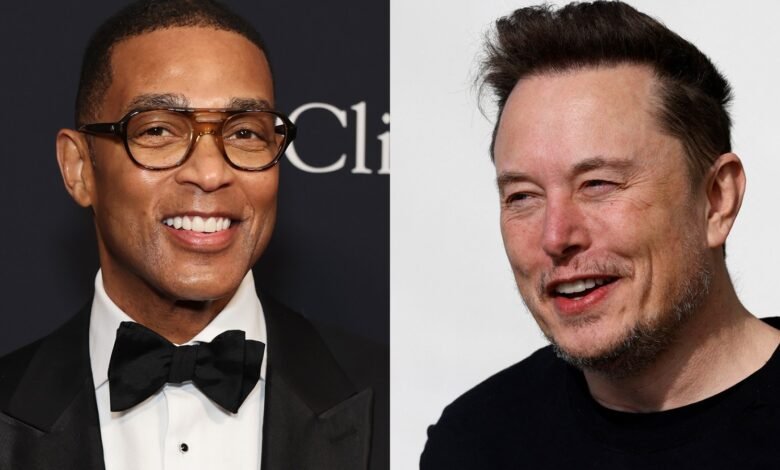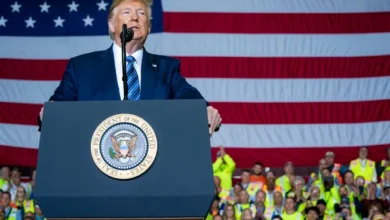Elon Musk Says ‘Moderation Is a Propaganda Word for Censorship’ About Offensive X Posts

“If it’s not illegal, we’re not gonna take it down. If it’s not illegal, we’re putting our thumb on the scale and being censors,” Musk says in new Don Lemon interview
Don Lemon’s interview with Elon Musk for The Don Lemon Show, which marked the beginning and end of his brief deal to start broadcasting on X (formerly Twitter), dropped Monday morning and is pretty much exactly what you’d expect: a lot of ducking, dodging, hypotheticals, gotchas, and reverse gotchas.
During the hour-long interview, Lemon asked Musk about everything from his drug use and censorship to the Great Replacement Theory and diversity, equity, and inclusion initiatives. Lemon even managed to extract a definition for whatever the hell the “woke mind virus” is. It is, per Musk, “when you stop caring about people’s skills and their integrity, and you start focusing instead on gender and race and other things that are different from that.”
That said, Musk’s aversion to making broad, sweeping judgements based on people’s identities and backgrounds seemed to have its limits. Like when Lemon pressed him on his flirtations with the Great Replacement Theory — a white supremacist conspiracy that people of color are replacing white people — in a tweet suggesting Biden’s immigration policy was basically a ploy to open up the border and get more votes. While Musk insisted he did not “subscribe” to the Great Replacement Theory, he did claim illegal immigrants just have “a very strong bias to vote Democrat.”
Lemon, of course, pointed out that non-citizens can’t vote in federal elections, a point Musk did acknowledge, before suggesting the real issue was that an influx of illegal immigrants gave Democrats an advantage in terms of house seats and electoral college votes. When Lemon again pointed out the electoral college really favored smaller, more conservative states these days, Musk said: “I think that statement, what you said is true. But what I said is also true.”
Lemon went on to ask about research showing hate speech had increased on X since Musk’s takeover. Musk called the studies “false,” said hate speech has actually “gone down,” and then tried to push the argument that the metric shouldn’t be how much hate speech is actually on X, but how visible it is.
Editor’s picks
“They’ll count the number of posts, but not count the number of views,” Musk said. “So what matters is, was that post given high visibility, or did one person see it? … If you look at how many times hate content was viewed on our platform, it is down substantially.”
Inevitably, this led the conversation to Musk’s favorite topic of them all: free speech and censorship. Lemon showed Musk a handful of offensive posts still on X, and tried to make the argument that social media has played an outsized role in radicalizing people and spurring racially-motivated mass shootings. Musk, in turn, argued that “moderation is a propaganda word for censorship,” and stated the platform’s policy: “If it’s not illegal, we’re not gonna take it down. If it’s not illegal, we’re putting our thumb on the scale and being censors.”
Musk did admit he thought such posts were “not good at all, it’s terrible,” but didn’t seem interested in doing anything about it: “What you’re suggesting is censorship that goes beyond the law.” Even when Lemon tried to point out that these posts seemed to go against X’s own rules about hate speech, and asked Musk flat out if he thought those posts qualified as hate speech, Musk held firm: “I guess you’re not understanding what I’m saying. You can sign up right now and do a hundred things that are hateful, but if nobody reads it, it doesn’t matter.”
Lemon later pressed Musk on his other recent bugbear: diversity, equity, and inclusion. Musk has amplified various tweets arguing DEI policies are dangerous, leading to poorer standards in medical care and airline safety. There’s no hard evidence to back up that standards are being lowered to aid DEI initiatives — though Musk insisted you’d find some in the replies to the tweets he boosted. Finally, Lemon asked Musk bluntly if he understood that just by arguing that standards are being lowered for DEI, he’s “implying that they’re being lowered because people are less skilled and less intelligent, and you’re talking about people of color and/or women?”
Related
After a beat, Musk found comfort in trying the old hypothetical again: “I’m saying we should not lower standards. That’s it.”
The interview also contained a brief discussion of Musk’s alleged drug use, which has reportedly raised concerns among executives and board members at some of his companies. Musk, for his part, insisted he tweeted sober and worked sober. He did acknowledge his prescription ketamine use, saying, “There are times when I have sort of… I don’t know, like a negative chemical state in my brain. Like depression, I guess… Or I guess depression that’s not linked to any negative views. And then ketamine is helpful for getting out of a negative frame of mind.”
Trending
He denied that the prescription has impacted his work, or that he abuses it. “If you use too much ketamine, you can’t any work done. And I have a lot of work.” When asked how often he does take ketamine, Musk replied, “A small amount once every other week, something like that.”
As for that one time he did smoke pot on Joe Rogan’s podcast, Musk said: “I had one pot. I think anyone who smokes pot can tell I don’t know how to smoke pot.”




